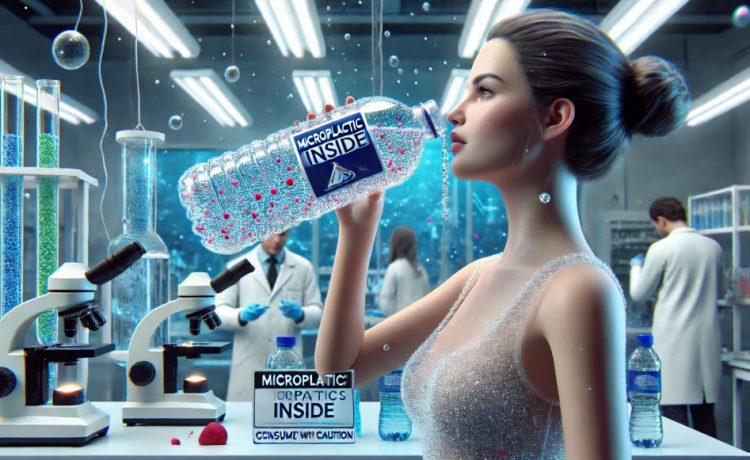Drinking bottled water daily? You could be consuming thousands of microplastic particles with every sip
Bottled water has become a ubiquitous commodity, often perceived as a convenient and safer alternative to tap water. However, recent studies and expert opinions have raised concerns about its health implications, prompting a closer examination of its advantages and disadvantages.
Advantages of Bottled Water
-
Convenience and Portability
Bottled water offers unparalleled convenience, especially in regions where access to clean tap water is limited. Its portability ensures hydration on-the-go, catering to the needs of travelers, athletes, and busy professionals.
-
Perception of Purity
Many consumers believe bottled water undergoes stringent purification processes, making it safer than tap water. This perception has been a significant driver of its widespread adoption.
Health Risks Associated with Bottled Water
-
Chemical Contaminants
Research indicates that plastic bottles can leach harmful chemicals into the water. Notably, Bisphenol A (BPA), an industrial chemical used in producing certain plastics, has been linked to hormone disruption and an increased risk of diabetes. A study presented at the 2024 Scientific Sessions of the American Diabetes Association highlighted that BPA exposure might reduce insulin sensitivity, potentially elevating the risk of type 2 diabetes.
-
Microplastics Ingestion
Bottled water has been found to contain microplastics. A study by researchers at Columbia University and Rutgers University revealed that, on average, a liter of bottled water contains approximately 240,000 detectable plastic fragments. The health implications of ingesting microplastics are still being explored, but concerns include inflammation and other potential health issues.
-
Cardiovascular Concerns
Emerging studies suggest a link between microplastics from plastic bottles and cardiovascular issues. Research indicates that these microplastics may contribute to heart blockages, although further investigations are necessary to fully understand this relationship.
Government Policies and Regulatory Actions
Recognizing the potential risks, regulatory bodies have initiated measures to ensure consumer safety:
-
India’s FSSAI Initiative
The Food Safety and Standards Authority of India (FSSAI) has categorized packaged drinking and mineral water as a “High Risk Food Category.” This classification subjects the industry to mandatory inspections and third-party audits to ensure compliance with safety standards.
Statements from Government and Opposition Leaders
Government officials emphasize the importance of regulatory oversight to protect public health. They advocate for stricter enforcement of safety standards in the bottled water industry.
Opposition leaders, while supporting consumer safety, stress the need for public awareness campaigns. They argue that consumers should be informed about potential risks associated with bottled water consumption and encouraged to consider alternatives.
Implications for Society
The debate over bottled water extends beyond health concerns:
-
Environmental Impact
The proliferation of plastic bottles contributes significantly to environmental pollution. Despite recycling efforts, a substantial number of plastic bottles end up in landfills and oceans, posing threats to wildlife and ecosystems.
-
Economic Considerations
Consumers often pay a premium for bottled water, assuming superior quality. However, studies suggest that tap water, regulated by stringent standards, can be equally safe and more cost-effective.
Educational and Health Perspectives
Educational institutions play a pivotal role in shaping consumer behavior. Schools and universities can promote the use of safe tap water and educate students about environmental stewardship.
From a health standpoint, encouraging the consumption of tap water, where safe, can reduce exposure to potential contaminants found in bottled water and support overall well-being.
Conclusion
While bottled water offers convenience, it is imperative to weigh its benefits against potential health risks and environmental consequences. Consumers are encouraged to stay informed, consider sustainable alternatives, and support policies that ensure access to safe and clean drinking water for all.
For more in-depth coverage on health and environmental topics, stay tuned to our upcoming articles.
Key Statements
-
“Bottled water is convenient, but the presence of microplastics and harmful chemicals raises serious health concerns.” – Health Expert
-
“Consumers assume bottled water is safer, but studies suggest otherwise. Tap water, when properly regulated, can be just as safe and far more sustainable.” – Environmental Scientist
-
“Microplastics in bottled water could have long-term health consequences, including cardiovascular risks and hormonal imbalances.” – Medical Researcher
Quotes
-
“Every sip of bottled water could be introducing thousands of microplastic particles into your body. The long-term effects are still unknown.”
-
“BPA and other plastic-related chemicals are linked to serious health risks, yet millions continue to rely on bottled water daily.”
-
“It’s time to rethink our dependency on bottled water – for our health and for the environment.”
Q&A Section
Q: Is bottled water safer than tap water?
A: Not necessarily. Tap water is regulated by stringent standards in many countries, whereas bottled water has been found to contain microplastics and chemical contaminants.
Q: What are the risks of drinking bottled water regularly?
A: Studies show exposure to microplastics, endocrine-disrupting chemicals like BPA, and potential cardiovascular risks.
Q: What alternatives exist to bottled water?
A: Using filtered tap water, carrying reusable bottles, and supporting policies for clean drinking water infrastructure.
Short Summary of the Subject
Bottled water, often perceived as a pure and convenient choice, poses significant health and environmental risks. Studies have found microplastics and chemical contaminants in bottled water, raising concerns about long-term health effects, including hormonal disruption and cardiovascular issues. Governments and health experts are urging stricter regulations, while environmentalists advocate for sustainable alternatives like filtered tap water.
Context and Background
-
The bottled water industry has grown exponentially over the past two decades due to concerns about tap water safety.
-
Studies have revealed the presence of microplastics in nearly all bottled water brands.
-
Governments worldwide are increasing scrutiny, with some introducing stricter regulations on bottled water quality.
-
Environmental concerns highlight the impact of plastic waste, as billions of plastic bottles end up in landfills and oceans.
#BottledWater #Microplastics #HealthRisks #EnvironmentalImpact #SafeDrinkingWater #PlasticPollution #StayInformed #HealthyChoices
![]()











